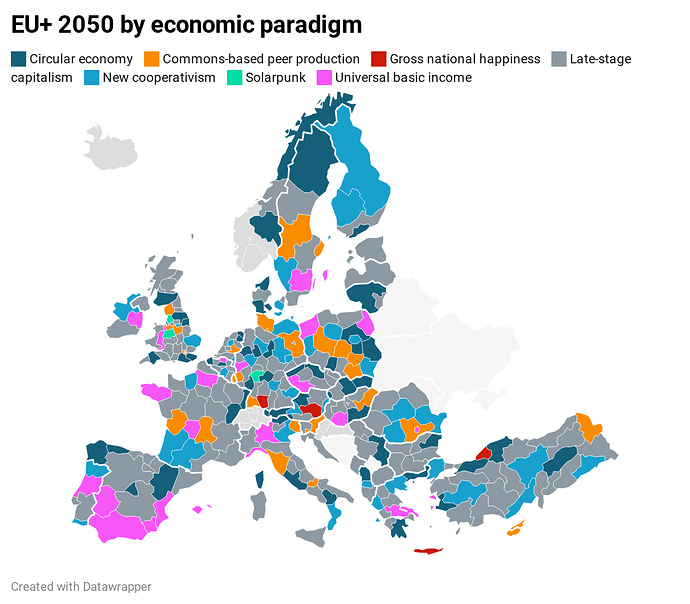The recording of the call can be found here: https://euregionsweek2020-video.eu/
150 registrations of very diverse participants: public servants at all levels, from the city to the Commission, European networks, consultants, academics and more.
Citizen engagement is a powerful way to tap into collective intelligence. So why is it so hard to get people to participate?
We discussed the challenges of citizen engagement; the role of data for and about collective intelligence; present some experiences; and discuss a possible future where different regions might pursue different models, rather than trying to converge on a dominant one.
The workshop was to encourage Europe’s regions to experiment with different economic models and show a data approach to collective intelligence which is the magic dust that can propel regional cohesion if people are enabled to act, not just talk.
Speakers were:
- Alberto Cottica, Research Director, Edgeryders
- Alessandro Bellantoni Head of the Open Government Unit, OECD, France.
- Amelia Hassoun (@amelia) Phd candidate, Oxford Internet Institute, United Kingdom.
- Giacomo Pinaffo (@giacomo.pinaffo) Project manager, Fondazione di Comunità di Messina, Italy.
- Stefan Appel Head of Unit of the Competence Centre for Administrative Capacity Building and the EU Solidarity Fund, DG REGIO, European Commission, Belgium.
Comment bellow to connect and ask questions you would like to be discussed during or after the event.
This event is brought to you by
This event is part of the NGI Forward project Generation Internet (NGI) initiative, launched by the European Commission in the autumn of 2016. It has received funding from the European Union’s Horizon 2020 research and innovation programme under grant agreement No. 825652 from 2019-2021. You can learn more about the initiative and our involvement in it at https://ngi.edgeryders.eu


Here a short list of highlights from the call:
What if we asked European regions, especially at the periphery, not to try to “catch up” with central ones, rather to lead in experimenting with different economic system? Maybe Thessaly does not want to be like Bavaria after all. Maybe it wants to be like Bhutan, promote harmony and “gross national happiness”. Maybe Pomerania wants to try a high-efficiency, low-GDP economy based on public goods. Maybe Sicily wants to try being a solarpunk utopia of mostly self-sustaining communities. As these regions move up the learning curve, their learning benefits us all – we can copy from them, the former laggards, what they have found to work. – Alberto Cottica, Edgeryders, opening remarks (read the full post).
People tend to feel it is always the same clique of NGOs and experts. However, there are “islands of good practice”, and they are many: OECD has recently listed 300 of them, from all over the world, in the last 10 years. Good practice tend to be associated with deliberation (people decide, not just advise), with professionalization of engagement, both on the side of public officials, and on that of citizens. – Alessandro Bellantoni, OECD
In my experience, engagement is situated. It happens at the point of delivery, where people’s life takes place. People are already participating in politics by living their lives; thus, citizens do not need to become active, because they already are.
Oh, and participation is not always about talking: anthropologists know that people do not always say what they do or do what they say – @amelia Hassoun, the Oxfort Internet Institute
In Messina, we follow Amartya Sen’s capability approach: development is essentially freedom. We generate trust and engagement by focusing hard on expanding the range of choices available to people and communities – @giacomo.pinaffo, Fondazione di Comunità Messina .
What does cohesion mean? It can mean many things, but for sure it means that citizens should have access to public services and opportunities, regardless of where they are. – Stefan Appel, Head of Unit of the Competence Centre for administrative capacity building and the EU solidarity fund, DG REGIO European Commission


